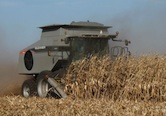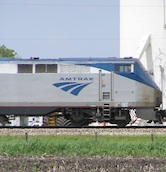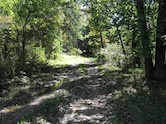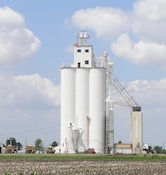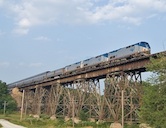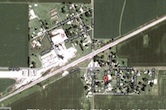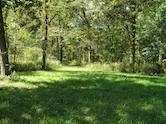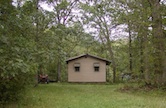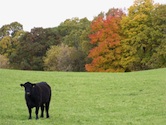Sitting Tall in the Saddle
The old man sat up straight in the saddle at home on the horse. Straight as a string was the saying accorded to one so rigid. He rode out over his farm, not a ranch it was located just east of the Mississippi, every day supervising the work on his farm. He was well off, established, a known and respected name in the community. He was quite entertained by my grandfather and his family, maybe bemused. Grandpa had rented a farm next to his; they were new to the community. It was likely a farm others had failed on, the usual way an opportunity opened up. My grandfather was often working other jobs as a carpenter, and his work force was my father and my aunt. Once cultivating crops they worked in tandem she driving and Dad setting the cultivator levers she wasn't strong enough to operate. Hydraulics were an unknown innovation at the time.
They were kids too young to have a driver’s license but they drove anyway. Licenses weren’t all that important then. The old man respected the hard work he saw. They were making a go of it; he respected that, as well. He would often accompany my youngest aunt riding her pony to the one room school for first grade. The pony was the meanest orneriest animal ever known to pony-dom, according to my father. The old man would often ride up into the yard and chat a spell never once leaving the saddle. Once he was in his equestrian perch he was there for hours at a time.
One winter day he came along on his ride and stopped to talk with my grandfather. It was late in the day, which is mid afternoon in the winter. As the old man sat tall in the saddle they discussed things. There was likely a lull in the work demands, little to do until time to milk the cow. Grandpa had come to know the rider and his hired men, and the old man had come to know my grandfather. Sitting on the top was the established man who rode his horse overseeing the work of others. In contrast to the working self-reliant man: struggling, pushing, and beginning to make a success where others had failed. My grandfather asked about what his men were doing? The man in the saddle said, they were moving hay in the mow of the barn. Grandpa then asked, why he had them doing that? The man on top said, he paid them by the day and there wasn’t really anything else that needed doing, so he sent them up in the mow to keep them busy until quitting time. Grandpa then asked one more question, in the spring when extra hours were needed did they stay past quitting time? No he answered, he paid for the day and they left at the same time. Grandpa then stated, he reckoned if he gave them time off when there wasn’t anything productive to do, they might put in more hours when it was important to work longer. The old man paused a moment taking in that thought. He nodded ending the chat and headed the horse home. He was a seamless rider, man and horse seemingly of one mind. He smoothly headed or halted without command or motion. Apparently on the slow ride home he mulled this over, because he stopped asking his men to do busy work and they worked longer hours when it was needed that spring. Grandpa told me the men appreciated the respect shown them. The change increased the productivity on their farm.
Of course in those days the men on top were not so removed from the workingmen. The world was fast changing to machines and automation, but hadn’t yet become modern. Elites had to interact with people independent of their business entities. His operation didn’t have an HR department; his productivity suggestions didn’t come from neatly groomed MBAs. He met others independent of his world view, others who were simply neighbors even if of unequal social status. The old man was just running his business, being fair, paying for a full day and expecting a full day in return. His hired men felt disrespected belittled; they wanted to work in partnership meeting the demands of the season as real men did. They wanted to feel pride in their efforts to be able to point to their accomplishments. People want to be accorded respect. Often people doing our most essential jobs are not given the dignity they have earned. In modern times CEOs earn over 300 times the average salary of their employees; often get bonus and severance pay of millions of dollars as they leave failing corporations. If the elites actually interacted with working class people independent of their power and status, they might broaden their perspectives. They might have the opportunity to realize the most productive and profitable workforce is one where people take pride in their jobs and the success of their company.
There has been much talk of wage inequality, but respect and dignity inequality is a bigger problem. If we all accorded each other respect for the efforts being put forth, perspectives would change. Seeing the real lives of the people toiling in their jobs and their daily lives would lead us to find more solutions and opportunities. Our economy would expand broadly and sustainably. We could become a nation of partners in the profits, as well as, sharers of sacrifice in times of distress.
John Deere with cultivator
Forgottonia
is a place where you can endlessly wander the lonely roads, and
never once miss the fast lane. The name Forgottonia captures an
image of a region, off the beaten path, which is very true of
Western Illinois.




